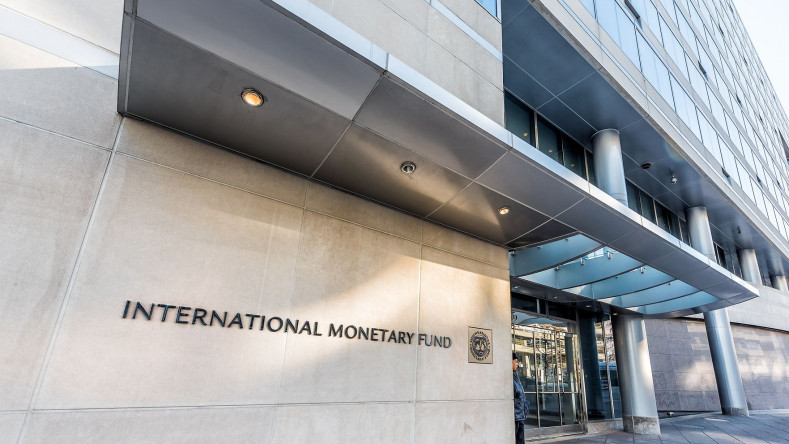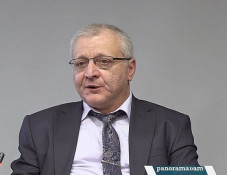
IMF forecasts for Armenia's economy amid coronavirus pandemic
The Armenian authorities have requested an increase in financial support provided by the International Monetary Fund (IMF) for the country and, pending Executive Board approval, around $280 million will be available immediately after the Board meeting, IMF said in a press release on Thursday.
The COVID-19 pandemic, together with the recent oil price shock and the tightening of global financial conditions, will significantly change Armenia’s near-term economic outlook and prompt a deterioration of its external and fiscal accounts, IMF experts forecast.
Higher access to IMF financing will help the authorities contain short-term risks and will provide resources to meet urgent medical and socio-economic needs during the peak of the virus outbreak, the statement said.
An International Monetary Fund (IMF) team led by Nathan Porter conducted discussions on the second review of Armenia’s reform program supported by the IMF Stand-By Arrangement (SBA) during March 12-April 8, 2020. At the conclusion of the mission, Mr. Porter issued a statement, which reads in part:
“We are happy to announce that the IMF team reached a staff-level agreement with the Armenian authorities on the conclusion of the second review under their economic reform program supported by a three-year SBA. The agreement is subject to approval by the IMF’s Executive Board, which is scheduled to consider the review in mid-May. The staff will also recommend an increase in IMF financial support for Armenia by SDR128.80 million (about US$175 million), which together with the authorities’ intention to draw purchase rights accumulated under the SBA would make SDR 206 million (about US$280 million) available to be disbursed immediately after the Board meeting. Such an increase is justified in the context of the urgent balance of payments financing needs resulting from the consequences of the spread of the COVID-19 virus. This financing will be allocated to the budget to help the authorities’ efforts in meeting urgent medical and socio-economic needs during the peak of the virus outbreak, thereby preserving the gains in economic potential and inclusion that Armenia has achieved over recent years.
“As elsewhere, the current global crisis will significantly weaken Armenia’s near-term economic outlook. Although projections are subject to very high uncertainty, since the duration of the containment measures is hard to predict, economic growth is expected at -1.5 percent in 2020 given COVID-related restrictions on domestic mobility and activity, substantially lower external demand, tighter financial conditions, and disruptions in global trade and supply chains.
“The fiscal deficit in 2020 is expected to widen to about 5 percent of GDP, due to lower revenues and higher spending on healthcare and economic support. The emerging financing gap would be closed by mobilizing financing from the IMF and other partners to complement that available from domestic capital market. While the government debt is projected to exceed 60 percent of GDP in 2020, as the crisis abates, the authorities are committed to the medium-term fiscal goal of debt sustainability, which will see government debt-to-GDP gradually decline over the medium term in line with Armenia’s fiscal rule, while maintaining space for investment and social spending.
“The Central Bank of Armenia has moved quickly to respond to the COVID-19 crisis within its dual mandate of price and financial stability. It promptly reduced the policy rate to boost inflation and support economic activity, yet it stands ready to adjust policies in case of capital outflow pressures and disorderly exchange rate movements to preserve financial stability. Domestic financial markets have generally functioned smoothly since the onset of the pandemic helped by CBA liquidity provision. The CBA’s regulatory and supervisory responses have been appropriately balancing the goals of preserving financial stability, maintaining banking system soundness, and sustaining economic activity.”
Related news
Newsfeed
Videos






























